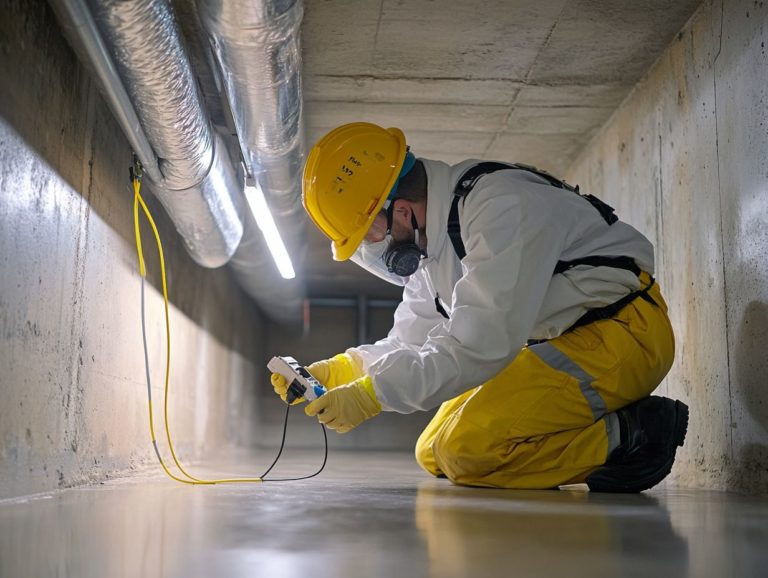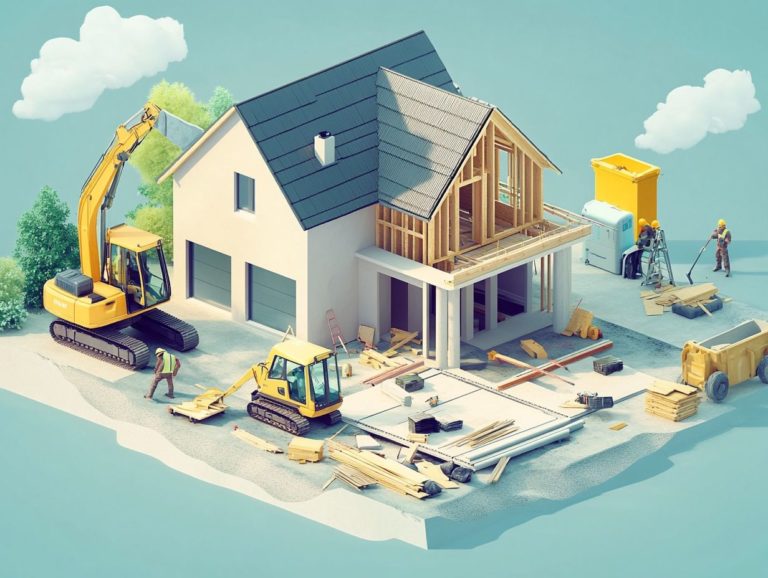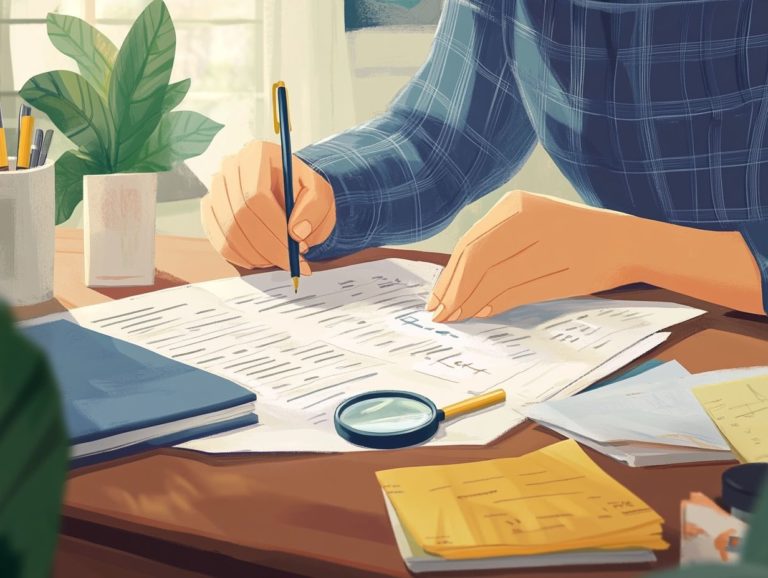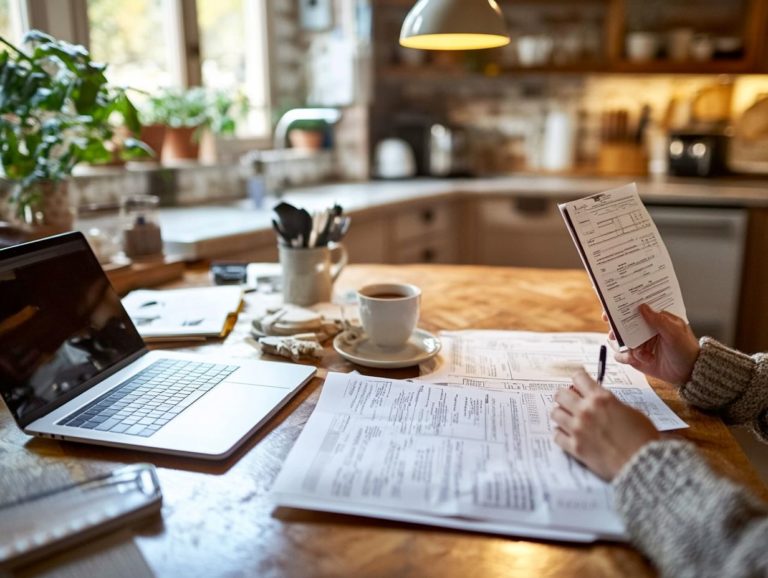The Importance of Home Inspections for Property Investors
Buying a home is undoubtedly one of the most significant investments you’ll ever undertake. It s essential to fully grasp its condition.
Home inspections are critical in this decision-making journey. They offer invaluable insights into the property’s strength and safety and vital systems, such as plumbing and electrical.
This article will walk you through what to expect during a home inspection and highlight common issues to be mindful of. It will also emphasize how selecting the right inspector can save you money and future headaches.
Stay engaged to make a smart investment!
Contents
- Key Takeaways:
- What to Expect During a Home Inspection
- Key Areas to Inspect
- Common Issues Found During Home Inspections
- Identifying Red Flags
- The Role of Home Inspections in Property Investment
- Choosing the Right Home Inspector
- Frequently Asked Questions
- What is the importance of home inspections for property investors?
- When should a property investor schedule a home inspection?
- What do home inspectors typically check for during an inspection?
- Can a property investor skip a home inspection if the property looks to be in good condition?
- How much does a home inspection typically cost for property investors?
- Are there any benefits to getting a home inspection for a property that will be renovated?
Key Takeaways:
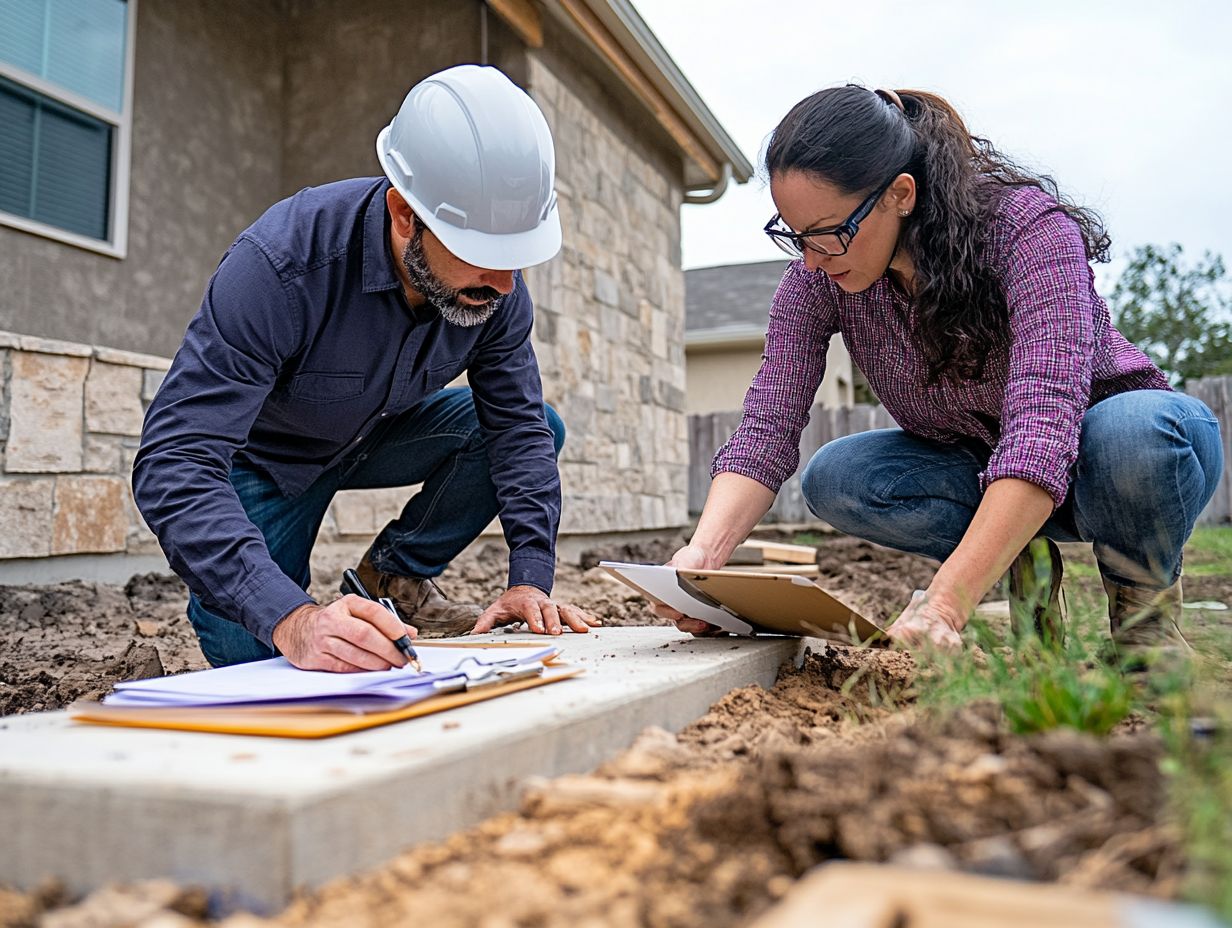
Home inspections are crucial for property investors because they provide a thorough check of the property’s condition. Understanding the importance of home inspections for property investors helps investors make informed decisions and avoid potential costly issues.
During a home inspection, expect a step-by-step process that covers key areas such as the building’s structure, electrical systems, plumbing, and heating, ventilation, and air conditioning systems. This ensures a complete evaluation of the property’s overall condition.
By identifying potential red flags and addressing them before investing, home inspections can save property investors money in the long run. They also highlight the importance of home inspections in real estate deals, providing an opportunity to discuss repairs or negotiate a lower purchase price.
Why Home Inspections are Essential
Home inspections are an essential part of your real estate investing journey, serving as a thorough check of the properties you consider. Understanding the importance of home inspections in property sales can provide valuable insights during this process.
Inspections help you find safety issues or structural problems that could impact the long-term viability and value of your investment. A professional inspection highlights the importance of home inspections for real estate transactions by revealing hidden damages and ensuring that the property complies with local building codes and safety regulations.
By uncovering potential hazards like mold, pest infestations, and water damage before finalizing a purchase, you can make informed decisions that protect your financial security and support your wealth accumulation.
These critical evaluations also help assess risk, allowing you to gauge the true condition of a property before committing significant resources.
Armed with detailed findings from an inspection, you can enter negotiations with greater confidence, potentially using repair costs as leverage to secure a more favorable price.
This transparency fosters trust between all parties involved and contributes to a smoother transaction process. Ultimately, thorough inspections lay the groundwork for sound investments, enabling you to build your portfolio with certainty and clarity.
What to Expect During a Home Inspection
During a home inspection, you can anticipate a meticulous and detailed evaluation of the property, carried out by a reputable inspector. Their focus will cover various systems and structures, ensuring that you get a clear idea of the home’s condition.
Step-by-Step Process
The step-by-step process of a home inspection unfolds through several key stages, beginning with the initial assessment and culminating in the final inspection report. Each phase is essential for you as a potential buyer to gain a comprehensive understanding of the property’s condition.
Initially, inspectors perform a visual examination of the exterior, scrutinizing the roof, walls, and foundation for any immediate concerns. This is followed by an interior inspection, where they assess vital systems such as plumbing, electrical, and heating, ventilation, and air conditioning systems.
The thoroughness of these examinations can significantly bolster your negotiating position, revealing potential issues that may impact the property’s value or require repairs.
Ultimately, the detailed findings presented in the inspection report become an essential tool, enabling you to make informed decisions during property transactions.
Key Areas to Inspect
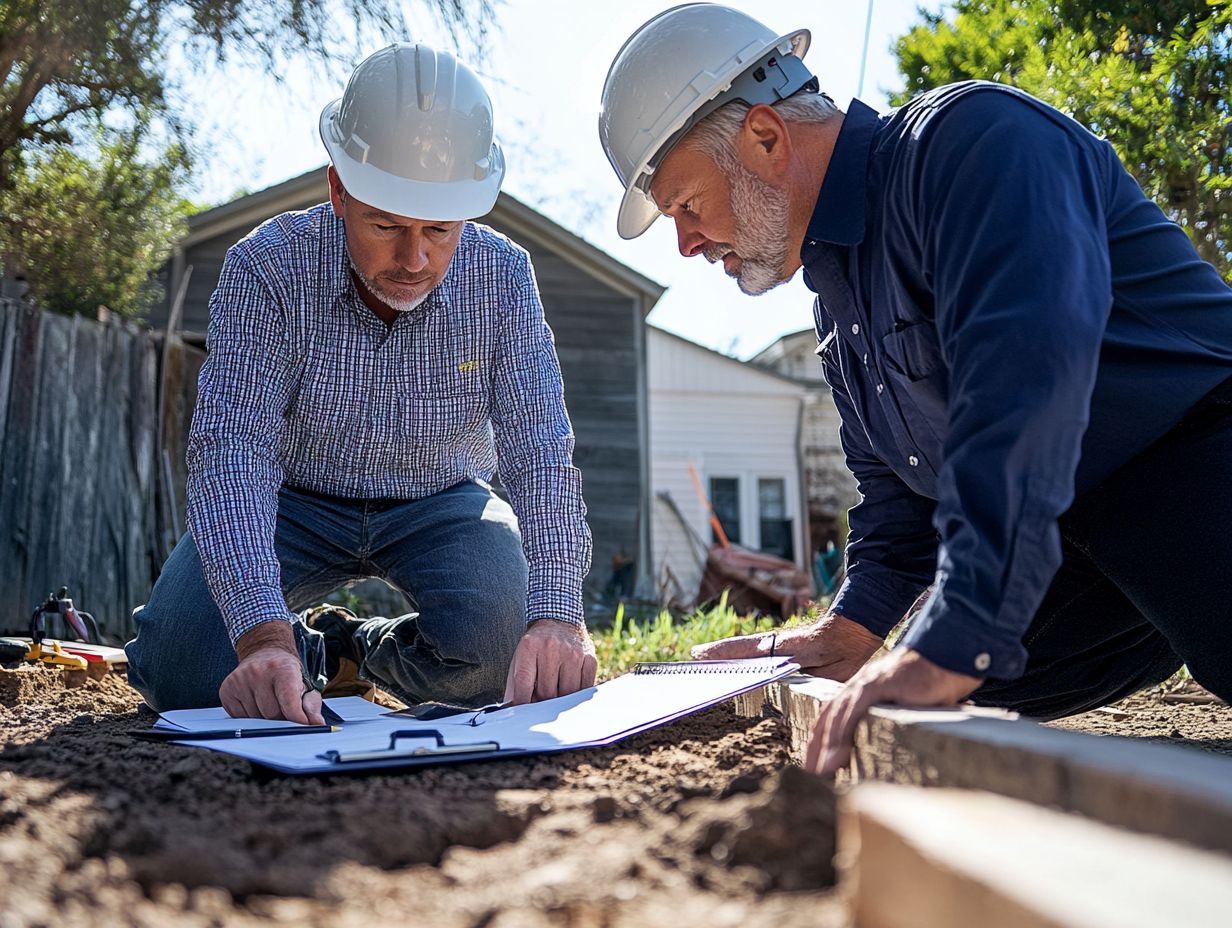
When conducting a home inspection, focus on key areas that significantly impact the property’s overall functionality and safety.
Pay close attention to the strength and safety of the building, as well as the condition of the electrical systems, plumbing, and heating, ventilation, and air conditioning systems. Each of these elements plays a crucial role in ensuring that your home operates smoothly and remains a safe haven for you and your loved ones.
Don’t skip the inspection – it could save you thousands!
Structural, Electrical, and Plumbing Systems
When you evaluate structural, electrical, and plumbing systems during a home inspection, it’s essential to spot any potential safety hazards that might lead to costly repairs or compliance headaches. Inspectors look into the details of these systems to ensure the property s integrity and functionality.
For example, in the realm of structural integrity, they check for signs of foundational issues like cracks or settling, which can pose serious safety risks. In terms of electrical systems, outdated wiring is a frequent concern. Not only can it increase the risk of electrical fires, but it can also impede the efficiency of your modern appliances.
Inspectors also look for plumbing issues like leaks or corrosion that could lead to water damage or mold growth, ultimately diminishing the property s value. Acting swiftly on these concerns can save you money!
Common Issues Found During Home Inspections
During your home inspection, you may encounter a range of common issues, including damages that could lurk beneath the surface. Safety concerns, such as mold and pests, are critical and deserve your attention.
Be prepared for the possibility of significant repair costs that can emerge unexpectedly, impacting your overall investment.
Identifying Red Flags
Identifying red flags during a home inspection is vital for you as a potential buyer, helping you dodge future pitfalls and avoid costly repairs that could jeopardize your investment.
Pay attention to crucial indicators, such as obvious signs of previous repairs, which may hint at underlying issues that haven t been properly addressed. Inspectors will check structural elements like the foundation and roof for any signs of wear or damage.
Non-compliance with local building codes can lead to significant expenses later on, as most municipalities enforce regulations intended to protect homeowners. By staying attuned to these potential concerns, you enable yourself to make informed decisions, safeguarding your financial security while optimizing the returns on your investment.
The Role of Home Inspections in Property Investment
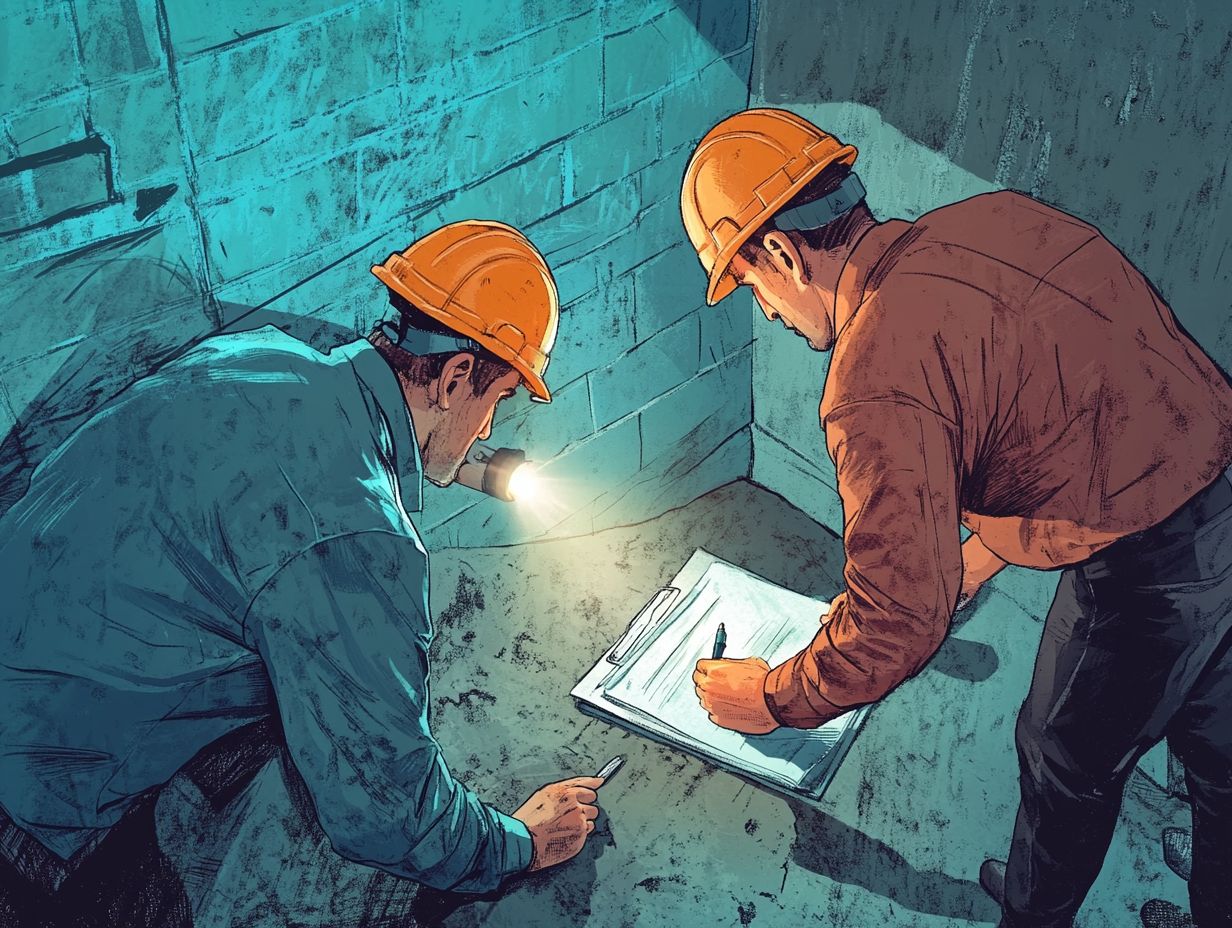
Home inspections are crucial for your investment! They offer you vital insights into the condition of your investment property and highlight the importance of home inspections in property transactions and its long-term value.
How Inspections Can Save You Money
Conducting home inspections can be a savvy move, saving you money by uncovering repair costs upfront. This gives you the leverage you need during negotiations.
Taking this proactive approach not only paints a clearer picture of the property’s condition but also arms you with essential information that can be important in negotiations.
By being aware of potential repair expenses, you can negotiate for lower prices or even request necessary repairs as part of the sale. Having this knowledge ahead of time streamlines the transaction process and minimizes the risk of unexpected costs cropping up later.
In this way, thorough inspections serve as a financial safeguard, ensuring you are well-informed and enabled to make decisions that align perfectly with your budget.
Choosing the Right Home Inspector
Selecting the right home inspector is essential for securing a thorough inspection that reveals any critical issues within a property, ultimately granting you peace of mind as a potential buyer.
A thorough home inspection is your best ally in making a wise property investment!
Qualities to Look for and Questions to Ask
When selecting a home inspector, carefully consider their qualifications and experience.
The caliber of the inspection report they provide is also important. Seek out inspectors with relevant certifications, such as those from the American Society of Home Inspectors (ASHI) or the National Association of Home Inspectors (NAHI). It s beneficial if they specialize in specific systems, like HVAC or electrical. This specialization can indicate their ability to identify potential issues that might not be immediately visible.
When interviewing candidates, ask about their experience with homes similar to yours. Inquire about the techniques they use to uncover hidden damages and how they communicate their findings in their reports.
Don’t forget to ask about their insurance coverage and whether they offer any guarantees on their work. These factors can boost your confidence in the inspection process.
Frequently Asked Questions
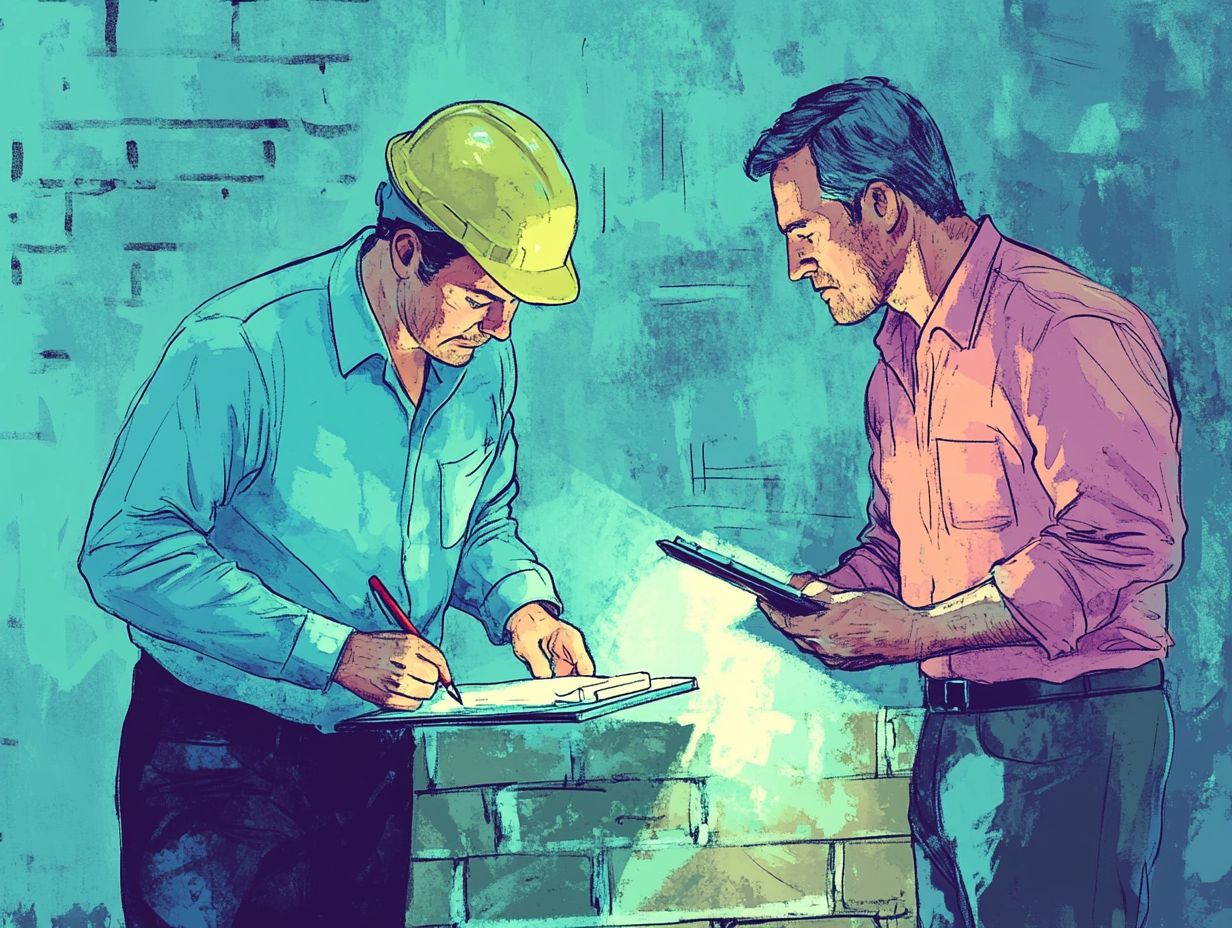
What is the importance of home inspections for property investors?
Home inspections are crucial for property investors as they provide a thorough evaluation of a property’s condition and highlight the importance of home inspections in real estate.
This information is vital in making informed decisions and avoiding costly surprises in the future.
When should a property investor schedule a home inspection?
A property investor should schedule a home inspection before purchasing a property.
This will give them a clear understanding of the property’s condition and any potential issues that may affect their investment decision.
What do home inspectors typically check for during an inspection?
Home inspectors typically check for the strength of the structure, electrical and plumbing systems, roofing, heating and cooling systems, and any potential safety hazards.
They also look for signs of water damage, mold, and other issues that may affect the property.
Can a property investor skip a home inspection if the property looks to be in good condition?
No, it is not recommended for a property investor to skip a home inspection even if the property appears to be in good condition. Understanding the importance of home inspections in real estate transactions is crucial for making informed decisions.
There may be underlying issues that are not visible to the untrained eye. A home inspection can provide valuable insight into the property’s condition.
How much does a home inspection typically cost for property investors?
The cost of a home inspection for property investors can vary depending on the size and location of the property, making it crucial to understand the importance of home inspections.
On average, a home inspection can cost anywhere from $300 to $500. This investment can save investors thousands of dollars in the long run.
Are there any benefits to getting a home inspection for a property that will be renovated?
Yes, there are several benefits to getting a home inspection for a property that will be renovated.
A thorough inspection can uncover underlying issues that may affect the renovation process and budget. Understanding the importance of pre-purchase home inspections can also provide recommendations for necessary repairs or upgrades to improve the property’s value and appeal to potential buyers or tenants.
Ready to discover the true condition of your potential investment? Schedule your home inspection today!


